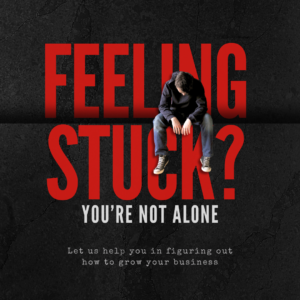Identifying Common Challenges Across Various Sectors
In today’s rapidly evolving world, various sectors face a multitude of challenges that are both complex and interconnected. Understanding these challenges is crucial for developing effective and innovative solutions. In the healthcare sector, rising costs remain a significant hurdle. According to the Centers for Medicare & Medicaid Services, healthcare spending in the United States is projected to reach $6.2 trillion by 2028. This surge in costs is accompanied by disparities in access to quality care, often influenced by socioeconomic status and geographic location. The implications of these issues are profound, affecting both individual well-being and broader public health outcomes.
Education, another critical sector, grapples with disparities that hinder equitable access to learning opportunities. Data from the National Center for Education Statistics reveals that students from low-income families are less likely to graduate from high school compared to their higher-income peers. This educational gap perpetuates cycles of poverty and limits economic mobility. Furthermore, the rapid advancement of technology poses a dual challenge: while it offers transformative potential, it also risks obsolescence. Many institutions struggle to keep pace with technological advancements, and the digital divide exacerbates inequalities, leaving certain populations at a disadvantage.
Environmental degradation is an overarching issue that impacts all sectors. The Intergovernmental Panel on Climate Change (IPCC) reports that climate change effects, such as rising sea levels, extreme weather events, and loss of biodiversity, are intensifying. These environmental challenges threaten ecosystems, human health, and economic stability. The interconnected nature of these issues necessitates a holistic approach to solutions. For instance, addressing environmental degradation can have positive ripple effects on public health and economic resilience.
Real-world examples vividly illustrate these challenges. For instance, the Flint water crisis underscores the intersection of environmental and public health issues, while the COVID-19 pandemic has highlighted systemic inequities in healthcare and education. By recognizing the scope and impact of these common challenges, stakeholders can better appreciate the need for innovative, cross-sectoral solutions that address the root causes and promote sustainable progress.
Innovative Solutions to Address These Challenges
In recent years, significant advancements in technology have paved the way for innovative solutions to address pressing global challenges. Artificial intelligence (AI) and blockchain technology are at the forefront of this revolution, particularly in sectors such as healthcare and education. AI-driven diagnostic tools, for instance, are enhancing the accuracy and speed of medical diagnoses, enabling healthcare professionals to provide timely and effective treatments. Similarly, AI-powered personalized learning platforms are transforming education by tailoring content to individual student needs, thereby improving learning outcomes and accessibility.
Blockchain technology is also making notable contributions, especially in the realm of data security and transparency. In healthcare, blockchain is being used to secure patient records, ensuring data integrity and privacy. In the education sector, blockchain-based credentialing systems are providing a secure and immutable way to verify academic qualifications, thereby reducing fraud and increasing trust in the system.
Beyond technological advancements, policy initiatives and community-based programs are crucial in addressing social inequalities and promoting sustainable development. Governments around the world are implementing policies aimed at reducing poverty, improving access to quality education, and fostering economic growth. Community-based programs, such as local entrepreneurship initiatives and grassroots movements, are empowering individuals and communities to take charge of their development, fostering a sense of ownership and responsibility.
Case studies from various regions highlight the success of these innovative solutions. For example, a community-led clean energy project in rural India has provided sustainable electricity to thousands of households, significantly improving quality of life and economic prospects. Similarly, a blockchain-based land registry system in Ghana has streamlined property transactions, reducing corruption and increasing land ownership security.
The role of collaboration between governments, the private sector, and civil society cannot be overstated in driving these innovations forward. Public-private partnerships are essential in pooling resources, expertise, and networks to implement and scale successful solutions. Civil society organizations play a critical role in advocating for change, mobilizing communities, and ensuring that the voices of the marginalized are heard.
This comprehensive overview demonstrates that through a combination of technological innovation, effective policy-making, and community engagement, it is possible to develop and implement solutions that create positive change across multiple sectors. The key lies in fostering collaboration and leveraging the strengths of different stakeholders to address common challenges effectively.

